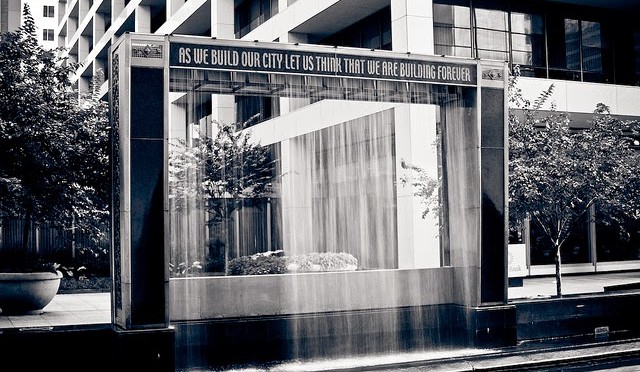
Directly from the
San Antonio Express-News...
The Texas National Guard said late Tuesday it will immediately let same-sex couples register for benefits, ending a highly publicized standoff with the Pentagon.
Five Texas Guard facilities that had been off-limits for same-sex couples seeking benefits will begin to enroll same-sex dependent … Continue Reading ››

Today is a big day for Houston's LGBT community... an emotional day as well. Directly from the
Mayor's Office, here's the press release...
Mayor Annise Parker today announced that the city will begin offering benefits to all legally married spouses of city employees. This will apply to same-sex couples … Continue Reading ››

The Texas Progressive Alliance honors the service of America's veterans as it brings you this week's roundup.
Off the Kuff analyzed the
favorable poll and the
unfavorable poll that came out last week.
Texpatriate, while happy that Mayor Annise Parker was re-elected, laments nonetheless that …
Continue Reading ›› 
Veterans Day, is the national holiday for us to thank our country's bravest citizens... those who risked their lives to protect all that is the United States of America. Filled with parades, meals and a plethora of other celebrations, the day serves as an important reminder that Veterans are a part of our communities …
Continue Reading ››

"As we build our city, let us think that we are building
forever... " ...
for a couple of years, enjoying and abusing for a few decades, leaving to
rot without a smidge of maintenance and upkeep for a decade,
then bulldozing to the ground to make way for ANOTHER hot, crusty gargantuan parking … Continue Reading ›› 
If you pay attention to the mainstream news, you may think that Texas' first "test run" of the new Voter ID law is going quite well in the 2013 elections.
Early voting procedures have been "largely successful" ... at least that's the line that many in the GOP are trying to spin. …
Continue Reading ››
As the Houston municipal elections draw to a close, it's time to focus once again on statewide election developments. Save for serious breaking news, I've decided to do a new blog series to keep up with regular election news called TexWatch 2014.
For the first such update, we start with the big …
Continue Reading ››
A Voice for the Rest of Texas





